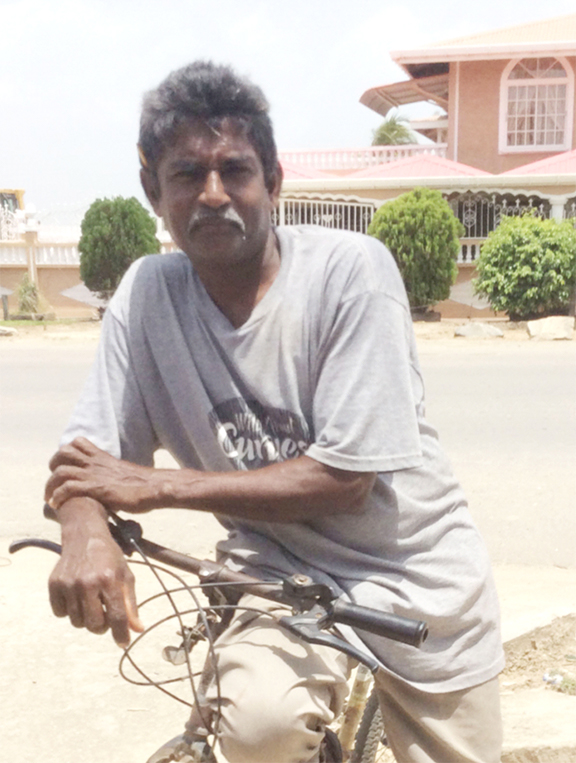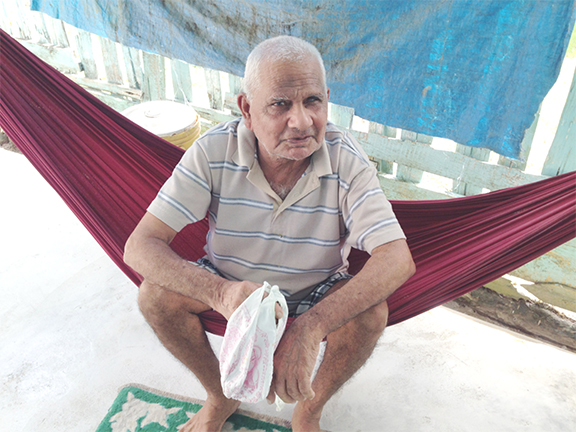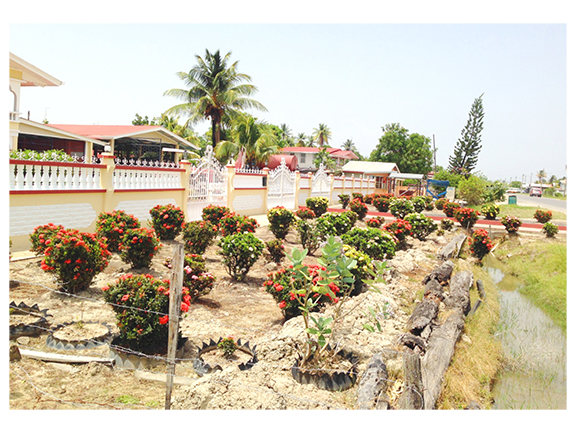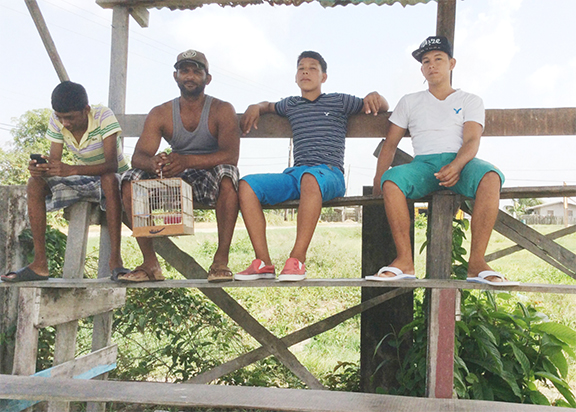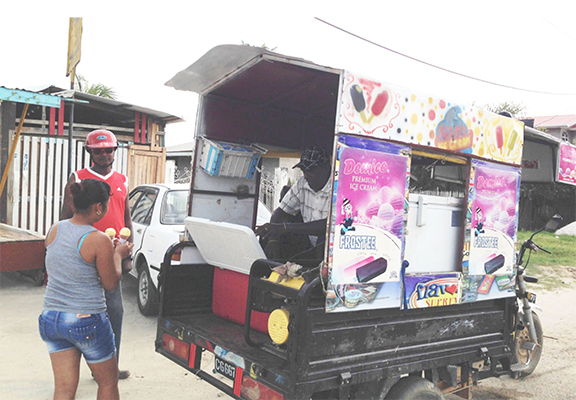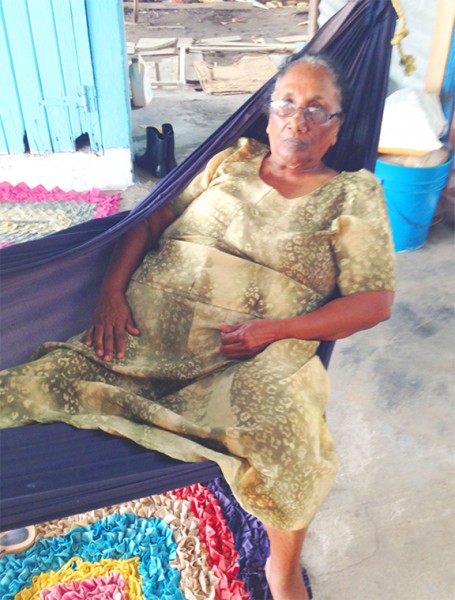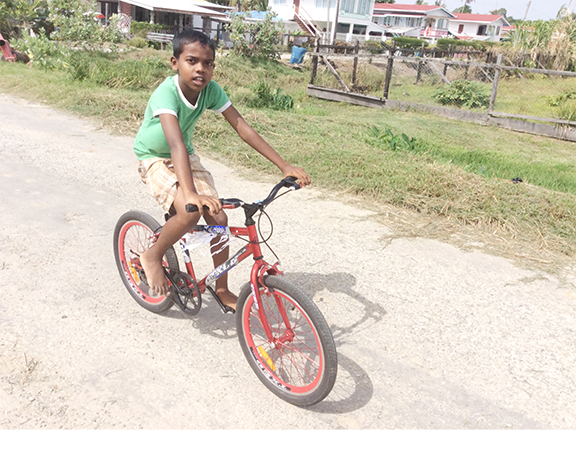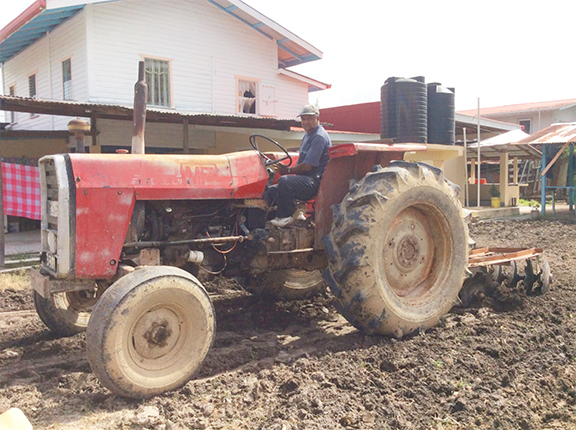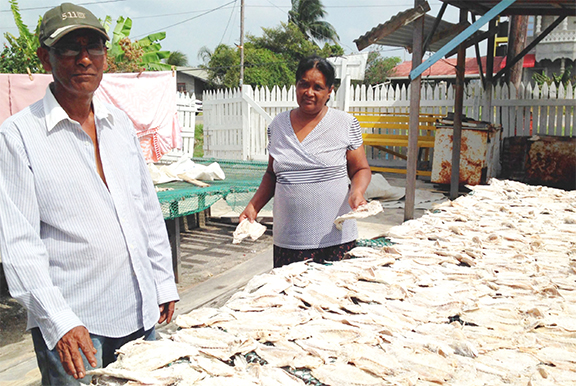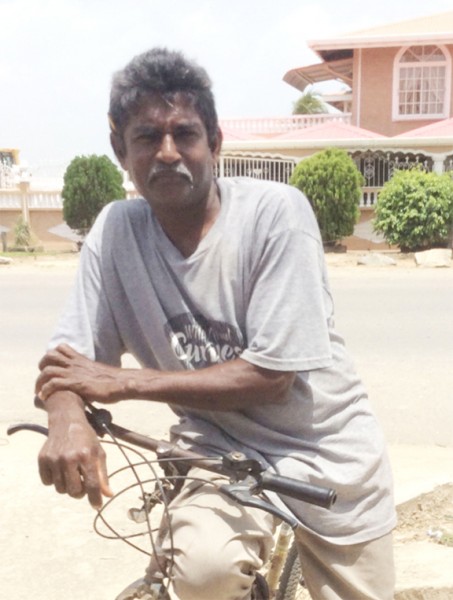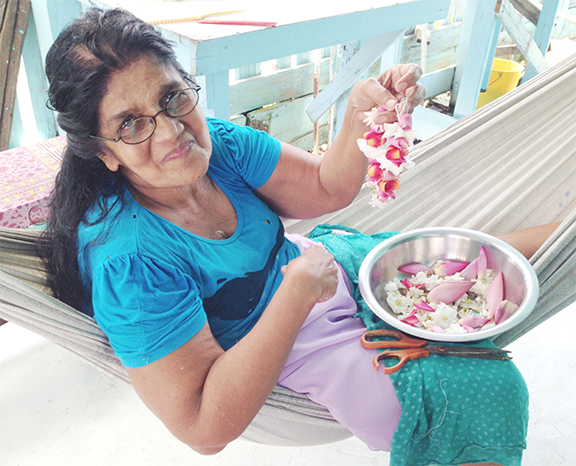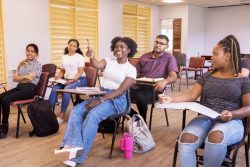With a population of almost 300, the close-knit Philadelphia, East Bank Essequibo is a thriving agricultural village that sees co-operation among its people.
Bordered by Vergenoegen to the east and Barnwell to the west, the village seemed just as peaceful and quiet as residents described it, except for loud music blasting from one house.
It was evident too, from the tractors present in almost every yard, that rice farming was the main form of livelihood.
Residents plant kitchen gardens and said it is better to do their own gardening as it makes them healthier. As one farmer puts it, “fresh fruits and vegetables is the way to go. But you cannot plant a lot if you don’t have the market. You can just plant to eat.”
Residents said industries can be set up for job creation, especially for the youth who need training in various skills in order to improve their lives.
Some of the residents are also engaged in livestock farming and said while they do not have “any thieving in this village,” they are affected by cattle rustling in the backdam.
Farmers are disheartened at times when they turn go to the backdam to take care of their animals and discover them missing or their skins and other parts scattered around. They have made reports to the police but so far no one has been caught.
The village has an electronics technician operating, but another business where an internet café, wash bay and beauty salon were operated has been closed for some time now.
Some residents are employed at the sugar estate at Uitvlugt while others own/operate minibuses or work as teachers, construction workers or as labourers with rice farmers.
There is also a problem with school dropouts and residents feel enough emphasis is not being placed on the importance of education. They said some parents would not insist that their children attend school when they reach a certain age.
Residents access health care from two nearby health centres: at Greenwich Park and Vergenoegen while their children attend primary schools in these villages as well.
The village also has potable water, electricity and telephone services as well as proper streets and internal drainage facilities.
Students would be placed at schools along the coast, including Zeeburg and Stewartville after sitting the National Grade Six Assessment exams.
Pavilion
A cricket ground in the village screams for an upgrade. Close to the entrance is a small pavilion that has been donated by a resident who owns the Rodman’s Beer Garden/Bar.
Three young men were sitting in the pavilion and another man who was walking with his bird joined them for a photo.
Music broke the silence, it was an ice-cream van passing through the village. It stopped briefly for an employee of the bar to make a purchase.
A little boy rode his bicycle along the street; he was running an errand.
Another resident, Deonarine ploughed his yard with his tractor. He has been involved in rice farming for over 20 years and plans to start planting cash crops for home use and to sell.
Another rice farmer, Ramdat Basdeo, was about to go out on his bicycle when this newspaper caught up with him. He has been in the rice business for over 10 years and his dream is to see the revival of the industry, a drop in the cost of production and for the millers to pay better prices.
Construction worker, Harrylall and a colleague were heading home for lunch. He worked as a labourer in the rice field first before obtaining a plot of rice to start his own farming to supplement his income.
Govhardhari Basdeo, another rice farmer also works as a labourer when other farmers need him, in order to bring in extra cash to maintain his family. He said he “grew up in rice farming” and used to assist his father in the backdam. He plants a kitchen garden for home use.
His children Ravindra and Mohini have completed secondary school and plan to work and further their education. They are both very creative and talented in art and would use their skills to help students with projects and assignments. One of the projects they created for a student was a model of the Kaieteur Falls and that student gained A+.
Govhardhari’s parents; Basdeo, 75, and Latchmin, 73, were sitting in separate hammocks – they belong to the Haribol organization and dedicate their lives to worshipping.
Basdeo was using his beads that were secured in a bag to pray silently while his wife was stringing garlands with fresh flowers for the deities. She too would spend her day in devotion after finishing her household chores.
They both said that their commitment to their religious practices gives them peace of mind and happiness. When they were younger they spent most of the day at the mandir and woke up from 3 am to start their prayers.
Latchmin has a lot of pain in her body while her husband is completely blind in one eye and is barely seeing from the other eye. He recalled that a doctor operated on his eye to correct a problem, but instead he made it worse.
Originally from Vergenoegen, Basdeo was among villagers who were forced out of their homes during the riots in the early 60s.
Latchmin’s family had moved to Vergenoegen from Uitvlugt and was also forced to flee to Philadelphia. Her paternal grandparents came from India to work on the sugar plantation.
A section of the village was once a cotton plantation but the most of the land was later abandoned. Residents moved there and squatted until they got ownership of the land.
At that time the main road was situated more towards the sea but was shifted to its present location when the then government constructed a new thoroughfare. Persons also started squatting on the railway line until they too became owners.
Seventy-five-year-old Safiran Safie spent her early life in Zeelugt where she assisted her parents in the backdam planting rice. She also worked as a labourer with other rice farmers.
After she got married and moved to Philadelphia she also helped her husband in the rice field. But that was before her five children were born.
Unfortunately, her husband died at the age of 35, leaving her to care for the children alone. She continued to farm on a plot of land located on the old railway line and sold the produce in the market.
But then the co-op took away the farming land and persons later used it to build houses. Safie continued gardening in her yard and also started making salted fish to sell; a trade she learnt from an older brother.
Her son, Mohamed Alim, 53, a security guard, and his wife, Asha share her home. Alim was relaxing when this newspaper dropped in while Asha, who has taken over the salt-fish business, was completing her household chores.
Alim first worked as a cane-cutter at the Uitvlugt Estate. He rears creole fowls for “home use.” He also assists in a salt-fish business.
Asha purchases the fish, Banga Mary, at the Meadow Bank wharf and following the processing she sells the product at the Parika market for $300 per pound.
She does it to supplement her husband’s income, declaring to this newspaper that “you can’t sit and depend on one work because when the bills come is another problem.”
At the time a bulldozer from the National Drainage & Irrigation Authority (NDIA) was in the village maintaining the dam.
The operator, Parmanand of Canal Number One, West Bank Demerara had taken a lunch break. He said he was happy to be playing a part in “keeping it [dam] in shape for the rice farmers.”
